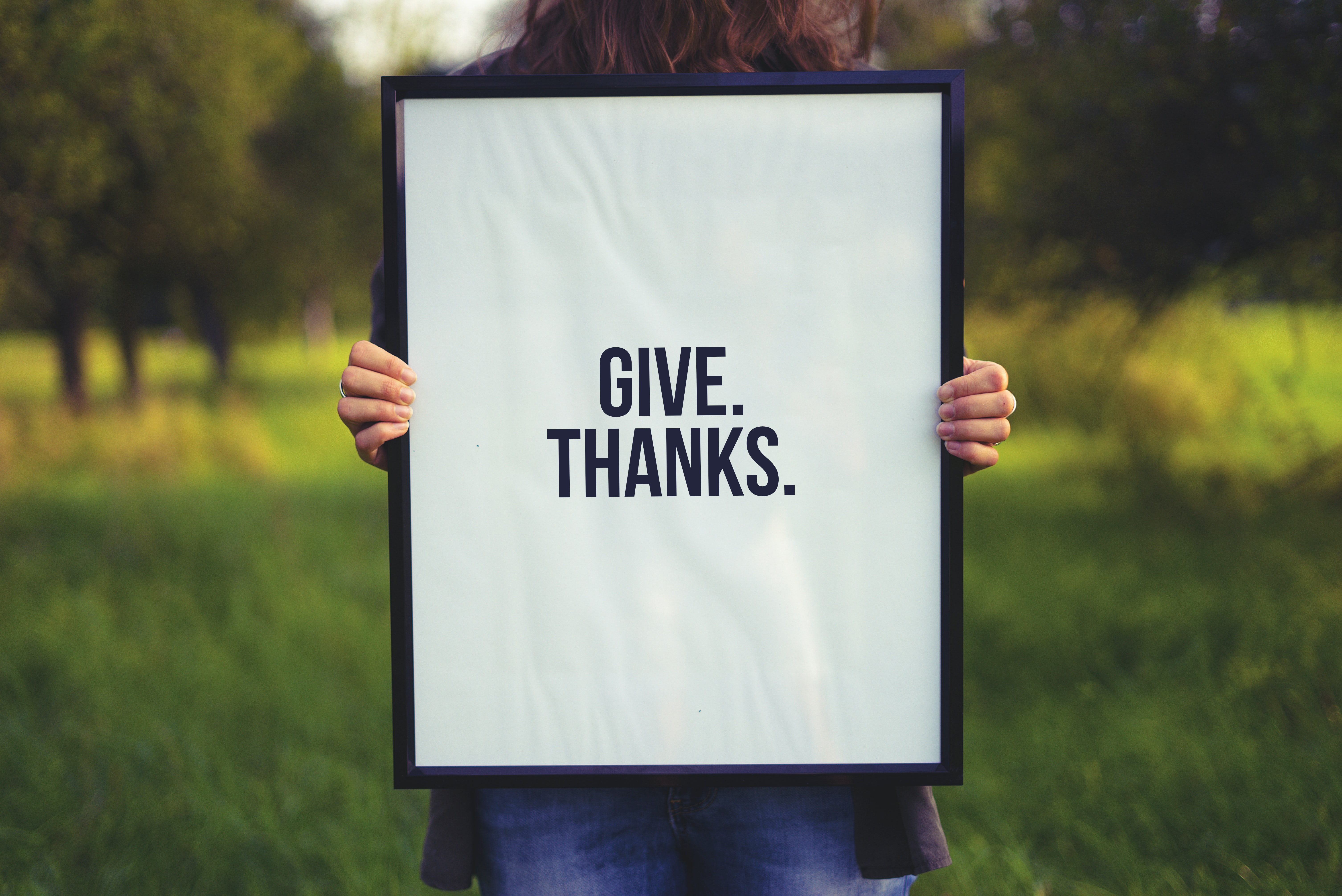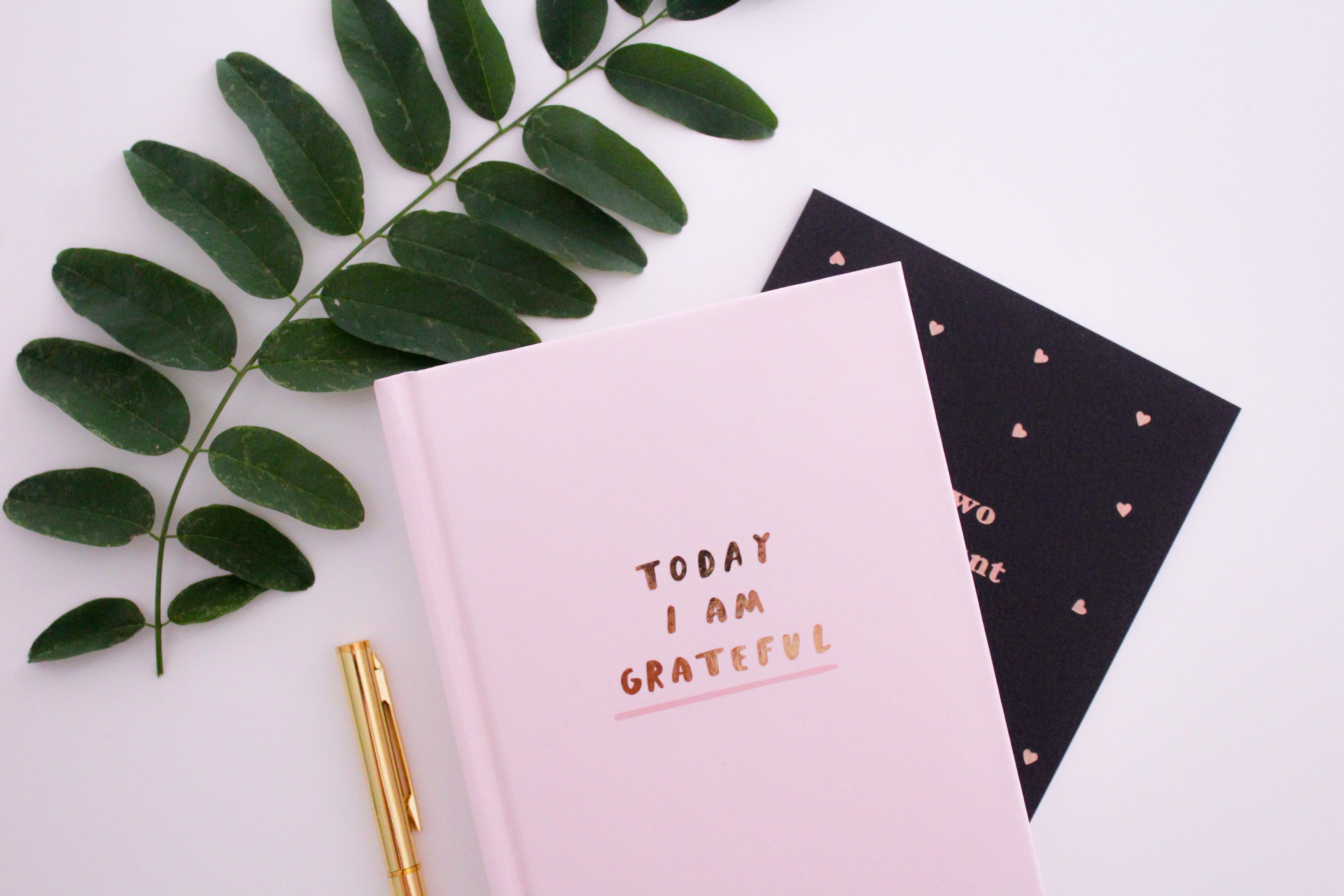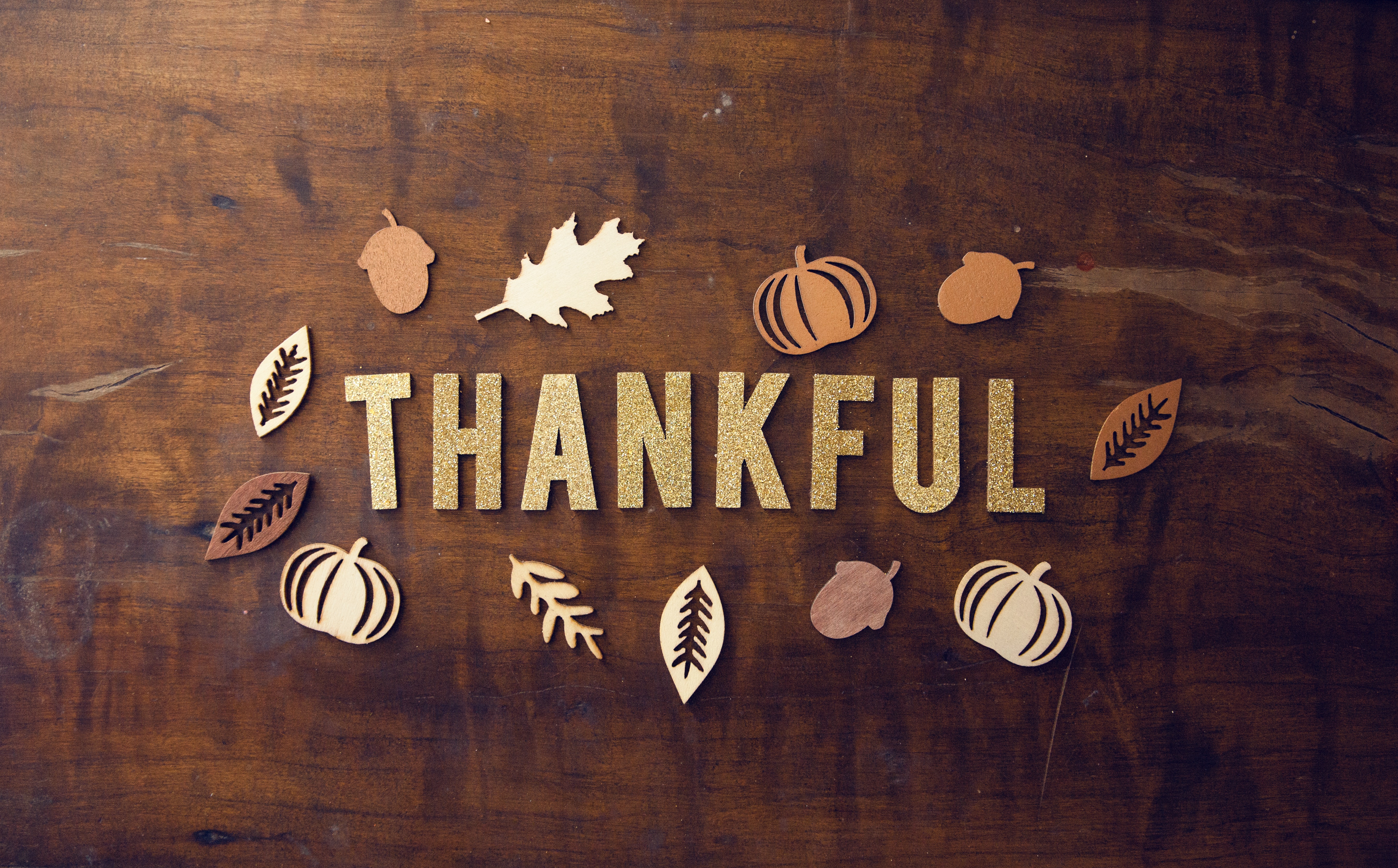It may seem obvious during this time of the year (for Americans) to give thanks but having gratitude extends beyond just one time each year. Studies show that gratitude and happiness are closely linked.
So, how can we demonstrate more gratitude more often in our lives?
What is gratitude

It seems to be a simple concept, but we’ll define it here nonetheless. Gratitude involves grateful expression or showing appreciation for and returning kindness (Oxford Languages).
In other words, gratitude is about giving thanks for people, things, and experiences in your life.
We often focus on what we are getting, achieving, and how many people like us. This focus can make us yearn for more and feel dissatisfied. Rather than being thankful for what we have, we are upset with what we don’t have.
Gratitude is about seeing things as a gift and yourself as the receiver of a gift (vanOyen-Witvliet). Therefore, it usually has a social aspect to it. However, you can be grateful for gifts from nature, a religious being, or a universal presence.
(Related: The Dangers of Being Self-Absorbed)
Why is gratitude important
Can one simple trait like having gratitude really be that important to someone’s well-being?
Clearly, people have put high regard on being thankful. Throughout history and in many religions, practicing gratitude is considered a virtue and a highly valued trait (Watkins).
People see gratefulness in others as a positive trait. While, on the other hand, people see ungratefulness as one of the most negative traits in another (Watkins).
While it is important to show gratitude publicly and to those in your life, practicing gratitude privately is also just as important. Gratitude seen as a strength may be tied to a good life and emotional well-being (Watkins).
How giving thanks can increase your happiness
I am happy because I’m grateful. I choose to be grateful. That gratitude allows me to be happy.
Will Arnett
Gratitude and happiness are linked. Although gratitude is usually past tense because it is about appreciating a gift and the giver whereas happiness is about enjoying the present, the past and present are both part of your life (vanOyen-Witvliet).
It would seem like a whole slew of positive traits are connected to each other. Being highly social was linked to having gratitude, hope, and happiness, as well as personal and academic well-being (vanOyen-Witvliet).
Therefore, one way to increase happiness in your life is to work on your gratitude.
Because gratitude is about being thankful for receiving a gift, it is only natural to experience joy.
When we think about the opposite of being grateful, it’s hard to imagine someone who is happy often. If someone receives a gift for which they are not appreciative, then it’s easy to see them as ungrateful, bitter, spoiled, etc.
How to practice gratitude
Gratitude is considered both a trait and a state meaning that gratitude is not necessarily inherent or equal among all people.
Some people may be in general more grateful more easily than others. This trait can be developed in you too.
Other times, gratefulness is a state of mind. Similar to how we feel during Thanksgiving, we are in a state of wanting to give thanks.
It doesn’t have to be in the moment
It is not necessary to experience gratefulness at the moment to be grateful (Watkins). People who are grateful can reflect on it afterward and it still counts.
Since gratitude is set in the past, it’s alright not to pressure yourself into feeling grateful as things happen. Let yourself feel joy if that’s the right emotion for your experience and then afterward, show and/or allow yourself appreciation.
There is no correct timing for how long afterward you need to feel grateful. Giving thanks for someone or something doesn’t expire and can even be demonstrated multiple times.
The important thing is that there is gratitude at some point afterward.
The more you practice, the easier it is to have

People who have the trait of giving thanks will be more likely to experience gratefulness in particular situations (Watkins). This means that if you practice being grateful often enough, you will experience it more easily and have a lower threshold for what makes you grateful.
It can feel awkward at first to give thanks, especially if others seem to brush it off. Gratefulness doesn’t have to have an emotional or loud demonstration. And those in your life that you do show appreciation to may play it down outwardly but it does feel good to them and it does matter.
Since gratitude can be improved through practice, you don’t have to look at others who are grateful and say “well that’s just how they are and I wish I could be like that but I just wasn’t born that way”.
You, too, can work on giving thanks and be a more grateful person.
You don’t have to have a lot to be grateful
Some of the most grateful people are those who have the least. How they can manage to be so thankful for what little they have is astounding to the rest of us.
There are those who face the end of their life with a terminal illness, and yet, demonstrate so much appreciation for things we take for granted. Like sunrises. How many sunrises have you seen? Or slept through? One woman who survived a brain tumor painted and appreciated every sunrise she saw since.
Sure, feeling grateful is when we experience an abundance in our life and if we feel deprived of what we want, we will find it hard to give thanks. However, it may be that we need to shift our expectations. When we do, we find there is a lot in our lives to be grateful for.
Simple pleasures are just as worthy. We can appreciate that we still have our health, that our pet comes to greet us, and that the sun rises and sets.
Give thanks throughout the year
It’s not enough to just give thanks once a year when we are prompted to. We have so much to be grateful for especially when you consider the simple gifts in life.
Reflecting each evening in a journal for what you are grateful for can positively feedback into our lives and make us happier.

People in your life will also reap from the appreciation you show and will possibly reflect that back to you creating another positive cycle.
It starts with you and how you want to look at your life.
I’m thankful that you read this post and to my readers who regularly visit my blog. Have a great Thanksgiving and live a life filled with gratitude.
Live happier,
Nicole
Let me know what you are grateful for in the comments below!
Learn more about me on my About page.
Share this post with others in your life.
Other posts you might like:
The Happiest Place on Earth: The Importance of Having a Vision
Building Self-Confidence for a Successful and Happier Life
Home Alone for the Holidays: How to Deal With Loneliness
Sign up for my bi-weekly newsletter and never miss a new post!
Like what you read? Consider supporting me by buying me a cup of coffee.
Links to my resources:
https://greatergood.berkeley.edu/pdfs/GratitudePDFs/5Watkins-GratitudeHappiness.pdf
https://digitalcommons.hope.edu/cgi/viewcontent.cgi?article=2591&context=faculty_publications

4 replies on “Giving Thanks: How Gratitude is the Key to Happiness”
Outstanding post! Thanks for sharing this helpful post!
I’m glad you found it helpful. Thanks for reading it!
Great post! I love the positivity of practicing gratitude as it seems we receive as much or more as we give. I really appreciate your tips. Thanks for sharing.
Thank you for reading my post! Gratitude is very reciprocal – it’s good for the receiver and the giver.